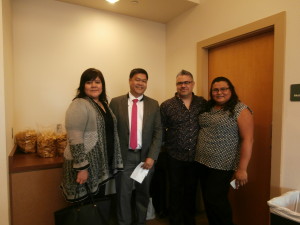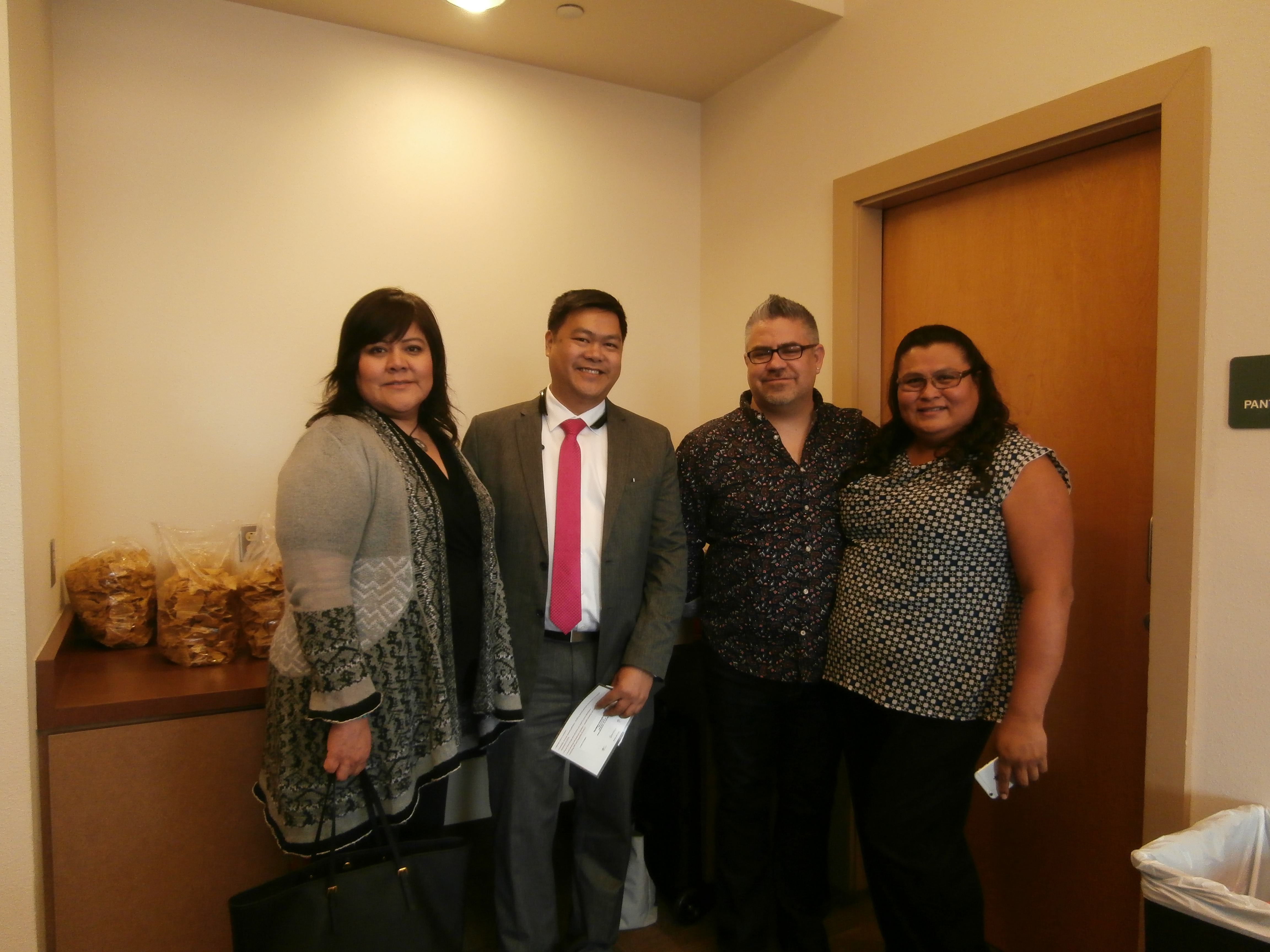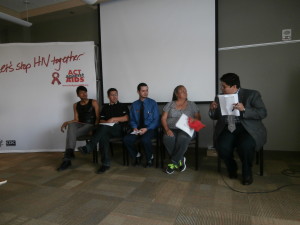March 20th – the first day of spring – marks the 9th annual National Native HIV/AIDS Awareness Day, a national mobilization effort designed to encourage Natives (American Indians, Alaska Natives and Native Hawaiians) across the United States and Territorial Areas to get educated, get tested, get involved in prevention, and get treated for HIV and AIDS. The Diverse Elders Coalition is commemorating this important day by offering resources to our constituents and encouraging everyone to get tested and #GetCovered. Remember that American Indians and Alaskan Natives can enroll in Marketplace coverage under the ACA at any time of year – no need to wait for a designated enrollment period.

NICOA and DEC celebrating National Native HIV/ AIDS Awareness Day with event organizers at the University of New Mexico
Native Americans are 0.9 percent of the U.S. population, yet they account for 6 percent of newly diagnosed HIV cases. The number of Native Americans diagnosed with HIV jumped over 900 percent from 1990 to 2001 – and those statistics may be conservative given the very real possibilities of inadequate reporting, lack of testing, and misclassification. (For more statistics and information, check out Mary Kate Dennis’ important article, “Risk and Protective Factors for HIV/AIDS in Native Americans: Implications for Preventive Intervention,” published in 2009.). The Diverse Elders Coalition has created an original policy brief, “Eight Policy Recommendations for Improving the Health and Wellness of Older Adults with HIV,” designed to address the needs of communities of color and LGBT older adults with HIV. AIDS.gov also offers a variety of resources and events commemorating NNHAAD, including free testing sites and information on how Native people can sign up for health care under the ACA.
Additionally, the National Indian Council on Aging, a Diverse Elders Coalition member organization, advocates tirelessly for American Indian and Alaskan Native elders, especially around issues of healthcare and disease prevention. As a non-Native ally who has supported Native communities and people living with HIV/ AIDS in other communities, I was honored to be invited to join NICOA Executive Director Randella Bluehouse and Project Coordinator Rebecca Morgan at an event celebrating National Native HIV/ AIDS Awareness Day at the University of New Mexico sponsored by First Nations Community Healthsource that included cultural performances, health education about HIV/ AIDS, and a powerful panel of speakers who talked about their experiences. One Navajo woman who is 58 and has been living with the disease for more than 10 years talked about the particular challenges she’s faced in her community, but also shared her resilience and the support network that keeps her going.
Randella Bluehouse will be attending the Aging in America 2015 Conference next week along with other NICOA staff and representatives to discuss caregiving for AI/AN elders. We hope you will consider joining us and sitting in on some of these unique and vital presentations. It’s not too late to register, and scholarship and volunteer opportunities are still available! You can see a complete list of NICOA sessions – as well as the sessions in which there will be representatives from all five Diverse Elders Coalition member organizations – on our ASA 2015 flyer.


